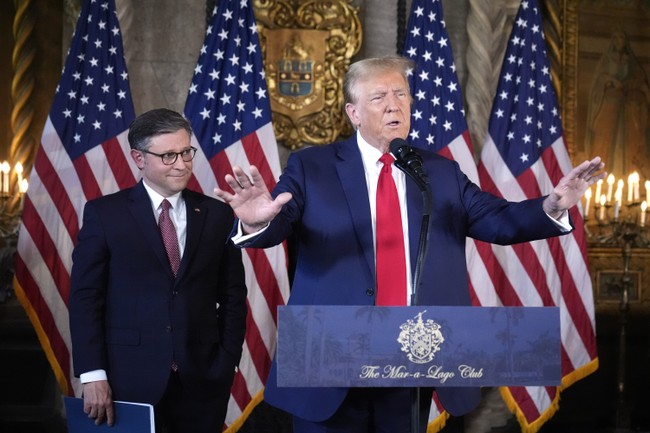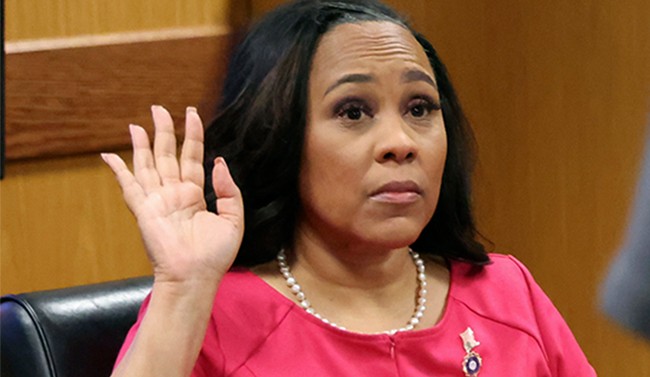Trump's Spending Battle: A Political Standoff
Explore the escalating confrontation over the U.S. federal budget as Donald Trump challenges bipartisan negotiations, risking a governmental shutdown amid deep political divisions.
Published December 20, 2024 - 00:12am

Image recovered from redstate.com
The escalating showdown over the U.S. federal budget has reached a new intensity as incoming President Donald Trump and key ally JD Vance vehemently oppose a recent spending proposal in Congress. Trump has criticized Speaker Mike Johnson's proposed continuing resolution, labeling it a 'mistake' and advocating for Republicans to challenge the Democrats by allowing a government shutdown if necessary. This bold stance is aimed at preventing what Trump perceives as 'Democrat giveaways' and ensuring upcoming fiscal debates occur during his administration.
This conflict highlights significant ideological differences in the U.S. political landscape, where Trump and his supporters resist a spending bill seen as embedding Democratic priorities. Within the resolution are provisions criticized for allegedly undermining accountability related to the January 6th committee and covertly advancing agendas that Trump and his allies argue provide little benefit to the American populace. Another polarizing point is Section 605, which seeks to halt investigations related to the committee, further entrenching partisan divides.
Adding complexity, influential voices like Elon Musk have played a pivotal role by galvanizing opposition against what they perceive as unnecessary expenditures. Musk, closely aligned with Trump's fiscal strategies, publicly denounced the current funding plan, rallying for a more efficient allocation of resources through his proposed Department of Governmental Efficiency. This reflects broader Republican calls for scrutinizing federal expenditures, particularly those perceived as less critical.
The determination to forge a streamlined spending bill without 'Democrat giveaways' is coupled with a strategic postponement of debt ceiling debates until Biden's term. This tactic, praised by Trump, aims to leverage political timing to attain favorable terms for Republicans, emphasizing rural support and disaster relief without conceding to Democratic demands.
As Trump calls for Republicans to 'Get Smart and Tough,' internal GOP tensions surface with Speaker Johnson seeking a 'Plan B.' Facing conservative resistance, Johnson considers removing $100 billion in disaster aid and other elements from the proposal, opting instead for a 'clean CR' to navigate through the political minefield.
The broader Republican agenda emphasizes fiscal prudence, aligning with Trump's 'America First' approach by addressing farmer support and disaster relief. This highlights challenges the GOP faces in consolidating its objectives amidst criticisms of yielding to Democratic influences and the need to manage longstanding fiscal issues, notably around the debt ceiling.
Democratic opposition, spearheaded by figures like Hakeem Jeffries, underscores the stakes involved, branding the Republican plan as unserious and forewarning of shutdown consequences. Echoing these sentiments, several Democratic representatives have expressed concern over external influences, specifically Elon Musk's imprint on GOP strategies.
As the deadline looms, the urgency intensifies. The potential shutdown risks bringing non-essential government operations to a halt, impacting federal workers and crucial services. These negotiations bear significant implications, exemplifying the intricate dynamics as Congress grapples with defining pragmatic fiscal policies while balancing political power struggles. As the situation unfolds, the interplay of political strategies and economic imperatives continues to shape the U.S. political sphere during this transitional phase.






